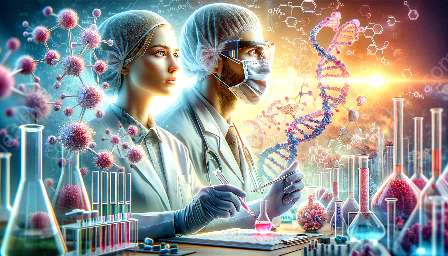Pharmaceutical biotechnology is an interdisciplinary field that combines principles of biotechnology, medicinal chemistry, and pharmacy to study and develop medications through biological systems and processes. It has brought about revolutionary advancements in the production of drugs, drug delivery systems, and the understanding of disease mechanisms.
Understanding Pharmaceutical Biotechnology
What is Pharmaceutical Biotechnology?
Pharmaceutical biotechnology involves using biological systems, living organisms, or derivates thereof, to develop or modify products and processes for specific pharmaceutical use. This may include the development of vaccines, diagnostics, and targeted drug delivery systems. It also encompasses the development of biopharmaceuticals, which are medications produced using biotechnology techniques.
Key Areas of Focus:
- Biopharmaceuticals
- Drug Delivery Systems
- Genetic Engineering
- Pharmacogenomics
- Bioinformatics
Applications of Pharmaceutical Biotechnology
Pharmaceutical biotechnology has transformed the way we develop and produce medications. Its applications extend to:
- Developing Biopharmaceuticals: Biopharmaceuticals, also known as biologics, are drugs derived from biological sources or produced using biotechnological processes. They include protein-based therapeutics, gene therapies, and monoclonal antibodies.
- Enhancing Drug Delivery Systems: Biotechnology has enabled the development of targeted drug delivery systems, improving the efficacy and safety of medications. This includes the use of nanotechnology for precise drug delivery to specific cells or tissues.
- Advancing Diagnostics: Biotechnology has revolutionized diagnostic tools, allowing for more accurate and efficient detection of diseases, such as through the use of biomarkers and molecular diagnostics.
- Personalized Medicine: Pharmaceutical biotechnology plays a crucial role in the development of personalized medicines, which are tailored to an individual's genetic makeup and specific disease characteristics.
Medicinal Chemistry and Pharmaceutical Biotechnology
Intersecting Principles:
Medicinal chemistry and pharmaceutical biotechnology are closely intertwined, with medicinal chemists contributing to the design and synthesis of biologically active compounds used as pharmaceuticals. The synergy between these disciplines has led to the development of novel drug candidates with enhanced therapeutic properties.
Role of Medicinal Chemistry:
Medicinal chemists leverage their expertise in synthetic and analytical chemistry to design, synthesize, and optimize small molecules and biologics. They collaborate with biotechnologists to enhance the pharmaceutical properties of drug candidates, such as improving their pharmacokinetics and target selectivity.
Integration in Drug Development:
Pharmaceutical biotechnology has reshaped the landscape of drug discovery and development, with medicinal chemistry playing a pivotal role in optimizing the therapeutic potential of biopharmaceuticals and other biotechnologically derived drugs.
Pharmacy and Pharmaceutical Biotechnology
Pharmacists as Key Stakeholders:
Pharmacy professionals are integral to the utilization and dispensing of pharmaceutical products developed through biotechnological processes. They must stay informed about the latest advancements in pharmaceutical biotechnology to ensure safe and effective use of these medications by patients.
Role in Patient Care:
Pharmacists play a crucial role in medication management and patient counseling, including providing guidance on the use of biopharmaceuticals and other biotechnologically derived medications. Their understanding of these products' characteristics and therapeutic profiles is essential for optimizing patient outcomes.
Regulatory Considerations:
Pharmacists are also involved in ensuring compliance with regulatory requirements related to the storage, handling, and dispensing of biotechnologically derived medications, contributing to patient safety and quality assurance.
Biotechnology's Influence on Modern Medicine
Impact on Disease Treatment:
Pharmaceutical biotechnology has significantly expanded the range of therapeutic options available to healthcare professionals, providing new avenues for treating a variety of diseases, including cancer, autoimmune disorders, and genetic diseases.
Future Directions:
The ongoing integration of pharmaceutical biotechnology, medicinal chemistry, and pharmacy is expected to drive further innovation in drug development, personalized medicine, and healthcare delivery, ultimately shaping the future of modern medicine.
In conclusion, pharmaceutical biotechnology stands at the forefront of modern drug development, bridging the realms of biology, chemistry, and pharmacy to drive advancements in therapeutic interventions and patient care. Its synergy with medicinal chemistry and pharmacy has paved the way for groundbreaking discoveries and an expanded arsenal of therapeutic options, laying the foundation for the future of medicine.


